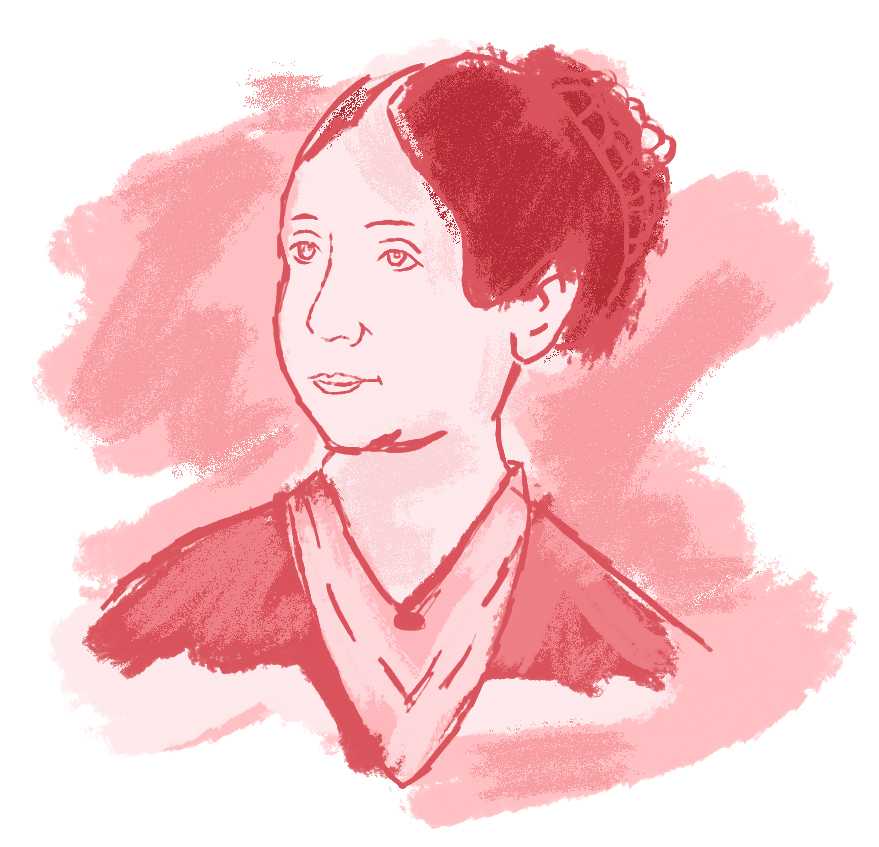You may have heard that for the first time in over 100 years, a woman will be featured on paper money. Harriet Tubman is expected to be honored with her portrait on the front of the $20 bill by 2020. Highlighting the back of the other newly-designed paper bill will be singer and civil rights activist Marian Anderson, United Nations Chairperson Eleanor Roosevelt, and women’s suffragist Alice Paul.
Story by Natalie Heineman
Illustrations by Jesus Acosta
This exciting news makes me wonder what it would be like if every piece of currency featured a woman. Plenty of successful historical women have been shunned in a society that often favors male figures, not only on money, but also in history books, on memorials and statues, and when selecting national holidays. We can pretend for a moment that women were featured on all major currencies.
Penny — Patsy Mink
In 1965, Mink became the first Asian-American woman to join the ranks of Congress. Representing her state of Hawaii, Mink served six consecutive terms in Congress and is perhaps most known for coauthoring the Title IX Amendment of the Higher Education Act, which prohibits gender discrimination in federally funded institutions.
Nickel — Dorothea Dix
After witnessing the horrid conditions of a Massachusetts prison, Dix spent the rest of her life lobbying Congress to fund state hospitals for the mentally ill and fought the stigmatization of mental health care. Because of her work, people with mental illnesses could receive the care they needed without being shoved in a prison.
Dime — Wilma Mankiller
In 1985, Deputy Chief Wilma Mankiller was named the Cherokee Indian Nation’s first female Principal Chief. During her two and half terms from 1985-1995 in office, Mankiller worked to improve the relationship between the federal government and the Cherokee Nation, saw an enormous population increase of Cherokee Nation citizens, and inspired young women in her community through political activism.
Quarter — Shirley Chisholm
Shirley Chisholm was the first African-American congresswoman, first African-American Presidential candidate for a major party and first woman ever to run for the Democratic Party’s Presidential nomination. Throughout her life, Chisholm fought for social justice reforms, especially with regards to education policy.
One Dollar Bill — Dolores Huerta
Huerta is a children’s and civil rights activist most known for co-founding the United Farm Workers union with Cesar Chavez. While her male counterpart organized farmworker strikes, Huerta negotiated contracts between the workers and the landowners. Her efforts resulted in safer conditions and healthcare benefits for the farmworkers.
Five Dollar Bill — Mae Jemison
In 1992, Jemison became the first African-American woman to travel in space. She is a medical doctor, worked in the Peace Corps and conducted experiments on motion sickness and weightlessness while in outer space.
10 Dollar Bill — Sandra Day O’Connor
Nominated by Ronald Reagan in 1981, O’Connor became the first female Supreme Court Justice. During her 25 years on the highest judicial bench, O’Connor fought for her moderate conservative beliefs, despite backlash from both sides of the political spectrum.
20 Dollar Bill — Harriet Tubman
Harriet Tubman’s image on the $20 bill is more significant than many people realize. Yoni Appelbaum, a writer for The Atlantic, recalled a story in which Tubman staged a sit-in and hunger strike in the office of an abolitionist so he would give her $20 to rescue her enslaved parents. When Tubman fell asleep, kind strangers stuffed $60 into her pockets, and Tubman was able to help her parents escape.
50 Dollar Bill — Ida Tarbell
Tarbell pioneered investigative journalism. Known as a “muckraker” in the early 20th century, Tarbell exposed the greedy practices of the Standard Oil Company, owned by John D. Rockefeller, the richest man in American history. . “The History of the Stand Oil Company” was written by Tarbell in 1904 and exposed readers and politicians to the immoral practice of monopolies. The breaking up of monopolies would become a cornerstone of the Progressive Era.
100 Dollar Bill — Coretta Scott King
King held two bachelor’s degrees, was an accomplished singer and assisted her husband, Dr. Martin Luther King, Jr, in the civil rights movement. She participated in the Montgomery Bus Boycott of 1955, highlighted the importance of women in the Civil Rights movement, and worked to pass the Civil RIghts Act of 1964. After her husband’s death, King remained a prominent activist. She advocated for people of color, women and members of the LGBT community. On top of all these efforts, she founded The Coretta Scott King Award, which recognizes African-American authors and illustrators who communicate the African-American experience in children’s books.
















































